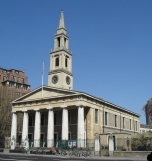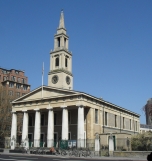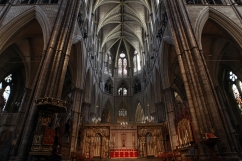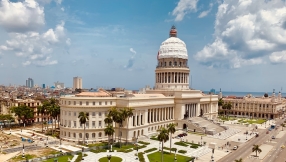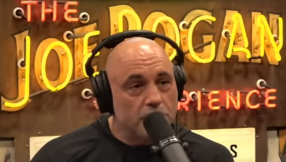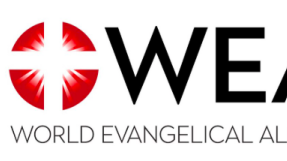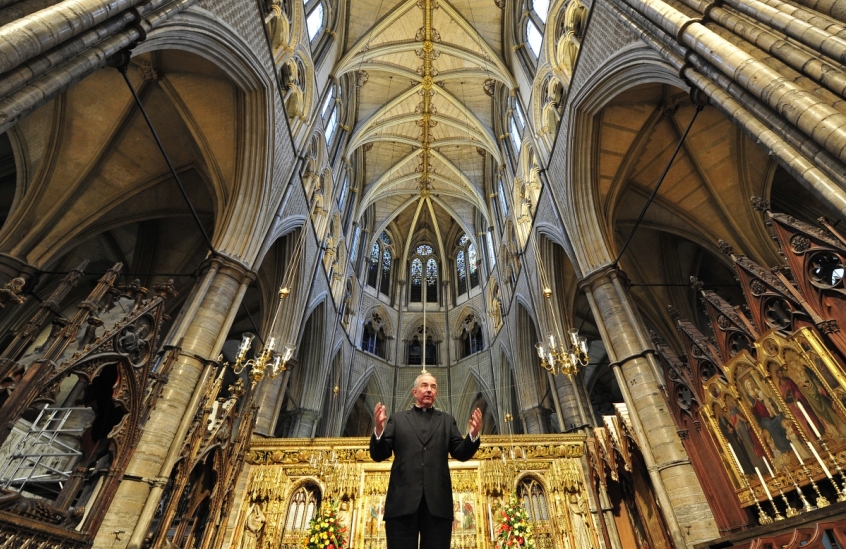
The Dean of Westminster has defended the choice of a prayer in which the prophet Muhammad was described as 'The Chosen One' at the Abbey as "within orthodox Christian worship".
Dr John Hall told Christian Today it was appropriate to offer hospitality to other faith traditions but this did not in any sense "compromise the form and orthodox character of our belief and proclamation."
The Abbey, which is a Royal Peculiar under the personal jurisdiction of the Queen and outside the Church of England's diocesan structures, was criticised by conservative Christians after a Turkish prayer was included in the annual Anzac Day service.
The service, held every year since 1954 and almost every year since 1916, is done with the Australian High Commission and New Zealand High Commission and this year marked the centenary of the ANZAC landings, part of the invasion of the Gallipoli Peninsula in Turkey during the First World War. Most of the troops involved were from the Australian and New Zealand Army Corps.
Critics noted that God was thanked in the Abbey and referred to as Allah, and there was no problem with that because Allah is simply Arabic for The God. But the congregation also heard a prayer in Turkish which began "Bizleri yaratan" and included the phrase: "Muhamad Mustafa" which means "Muhammad The Chosen One".
King George V and Queen Mary attended the first Anzac Day service in 1916 and the Queen and Duke of Edinburgh attended this year's service.
In 1934 Kemal Atatürk, born Mustafa Kemal, wrote a tribute to the Anzacs killed at Gallipoli: "Those heroes that shed their blood and lost their lives ... You are now lying in the soil of a friendly country. Therefore rest in peace. There is no difference between the Johnnies and the Mehmets to us where they lie side by side here in this country of ours ... You, the mothers who sent their sons from faraway countries, wipe away your tears; your sons are now lying in our bosom and are in peace. After having lost their lives on this land they have become our sons as well."
Dr Hall said this had proven to be a great message of reconciliation. In recent years, many Australians and New Zealanders had visited Gallipoli. For many years, the Turkish Ambassador in the UK has attended the service and read Atatürk's message. The Turkish flag is also brought to the altar along with the UK, Australian and New Zealand flags. The two additional features added to the service this year were the playing of the Turkish national along with those of the other three countries, and the inclusion of a prayer from the Turkish tradition chosen by Turkish religious affairs personnel.
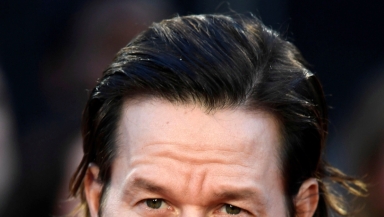
Dr Hall said: "For a long time we have been considering what is the role of Westminster Abbey. There is no question that Westminster Abbey is Church of England Christian. We have 28 services every week which are absolutely orthodox Anglican services attended by between 3,000 and 4,000 people. That is the heart of what we are. Faith at the heart of the nation is what we stand for."
But he continued: "I have become clear in my mind that we need to inhabit this space generously. The faith communities in our country need to get to know each other and work together. There are many signs that this is happening in a positive way. There are particular occasions in a year when we invite not only other denominations to participate in services but other faith communities to be present as well and occasionally participate."
One such example is the Commonwealth Day observance in March, when prayers from other traditions are also said. Dr Hall said the Muslim prayer was used at the Anzac Day service within this context.
"This particular isolated prayer is within orthodox Christian worship behaviour, teaching and everything. It does not overturn in any way our belief that Christ is the Son of God, that he is the revelation of the Father, that no-one comes to the Father but by him. That is at the heart of what we are and what we believe. But we believe it is right to be welcoming and generous to other faiths."
He said he understands that some people do "take exception" to it.
"But what I want to say is that in our world, it is vitally important that Christians work with those of different faiths as well as of no faith."
He quoted the Queen's own speech at an interfaith gathering at Lambeth Palace, London, when she said: "The concept of our established Church is occasionally misunderstood and, I believe, commonly under-appreciated. Its role is not to defend Anglicanism to the exclusion of other religions. Instead, the Church has a duty to protect the free practice of all faiths in this country."
Dr Hall concluded: "The way we have begun to think about this is that on particular occasions, it is appropriate to offer hospitality to other faith traditions. But that does not in any sense compromise the form and orthodox character of our belief and proclamation."










